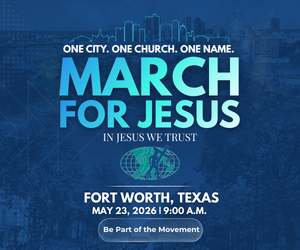This story has been corrected to say that Phases 3 and 4 of the Museum Place development are moving forward, but without city incentives for the time being. Previously, the article incorrectly stated that development of Museum Place will no longer continue.
The work to create a sustainable pension fund for Fort Worth city employees continues as the city’s Pension Review Board factors in a valuation by human resources and benefits consulting firm Segal Consulting.
Compared with previous estimates, the numbers are bigger.
Segal’s Dec. 31, 2015, valuation found that the city’s unfunded liability is about $1.4 billion, up from about $1.3 billion the year before. The unfunded liability is the difference between the benefits promised and the money the city has available to pay for those benefits. The amortization period to pay off the unfunded liability is now 72.5 years, up from about 56 years as previously estimated.
Because the city’s amortization period has been longer than 40 years for the past three years, the Texas Pension Review Board requires Fort Worth to come up with solutions by November 2017.
“It’s going to take a lot of creative minds and a lot of people who are really willing to come together to work together for the best,” Mayor Betsy Price said.
The goal is to get the amortization period down to 40 years, said Joelle Mevi, executive director and chief investment officer of the Fort Worth Employees’ Retirement Fund. Prior to 2009, the time frame was infinite until the city decided to cut employee benefits, a move that prompted the Fort Worth Professional Firefighters Association and the Fort Worth Police Officers Association to sue the city. Federal judges dismissed both lawsuits last year.
Hoping to improve the retirement fund and avoid future issues, City Manager David Cooke formed the Pension Review Committee last fall, made up of representatives from the city, police and firefighter departments. The group has spent months reviewing the fund’s history over the past 25 years, studying employee/retiree statistics and turnover rates, as well as comparing Fort Worth’s fund with other cities such as Dallas, Austin and El Paso.
Mevi said finding a city with a healthy pension fund isn’t easy.
“You can try,” she said.
The committee is yet to come up with solutions, but Cooke said the group isn’t rushing the process.
“The Pension Review Committee is continuing to work,” he said. “We haven’t given ourselves a hard timetable on when you’ve got to come up with solutions, but we know we have to come up with solutions at some point in time. We at least have to have something in place by November 2017 for the [Texas] Pension Review Board.”
CITY INCENTIVES FOR RETAIL
The City of Fort Worth is looking at ways to update its incentive policies, and one proposed change aims to bring more retail developments to targeted areas.
City staff, along with representatives from business organizations such as the Fort Worth Chamber of Commerce, Real Estate Council of Greater Fort Worth and East Fort Worth Business Association, formed an advisory committee last year to discuss possible changes to the city’s tax abatement and economic development incentive policies. The group presented its proposals to the Fort Worth City Council on June 21.
“[Committee members] were all in unison in terms of making sure that areas that haven’t been receiving opportunity in the past would find every way to receive, in every way that we could, opportunity moving forward,” said David Berzina, executive vice president of economic development at the Fort Worth Chamber of Commerce.
The group mapped out areas of Fort Worth in need of retail businesses, called “retail eligible target areas,” said Robert Sturns, economic development director at the city. Under the revised policy, developers who wish to bring retail to those areas can be considered for tax breaks on their projects if they invest at least $1 million. Developers can be eligible for a minimum 55 percent tax abatement and can work up to an 85 percent tax abatement, depending on what elements they add to the project, such as public open spaces or environmental certifications.
“If there are retail projects that come forward, we want to make sure that they are really drilling down into some of these areas,” Sturns said.
The city’s existing incentive policies allow developers to apply for grants and tax breaks from the city. Incentives are given on a case-by-case basis and depend on factors such as the amount of investment in the project, the jobs it would create and its possible economic impact on the city. Some developments that received incentives in 2015 are the American Airlines Integrated Operations Center, the Elan West 7th apartments and the WestBend mixed-use development.
The city council is scheduled to vote on the policy update June 28.
CONCRETE PLANT REJECTED
The fight to stop a concrete recycling plant from being built on East First Street is over.
The city council unanimously voted June 21 to deny a zoning change that would have allowed landowners Jane White 2011 Irrevocable Trust and West Fork Partners LP to build the plant in the 5300-5600 blocks of East First Street. The approximately 363.5-acre site currently has as mix of commercial and multifamily residential zoning. The rezoning would have allowed the land to be used specifically for a concrete recycling plant.
The plans met heavy opposition from neighborhood residents expressing concerns about noise, safety and the effect on air quality. The opposition prompted the developers to cancel their zoning request, but the case still had to be formally denied by the Zoning Commission and the city council. Dozens spoke against the plant at the June 8 Zoning Commission meeting, nearly filling the meeting chamber to capacity. The crowd clapped and cheered when the Zoning Commission voted to deny the request.
With the city council’s vote, the project cannot come back to the city for at least a year.
ANIMAL HOSPITAL
An animal hospital will soon be relocating to southwest Fort Worth as the city council unanimously approved the site plan for the project on June 21.
Hulen Hills Animal Hospital, currently located at 3201 Hulen St., plans to move to 4814 Locke Avenue, south of Interstate 30. The new, two-story facility will be about 23,100 square feet, with 40 indoor kennels, an exercise area and office space among other amenities. The hospital is expected to break ground in the fall and be complete in the fall of 2017.
Along with the animal hospital, the city council made more moves for Fort Worth’s four-legged friends, selecting a contractor to expand the Silcox Animal Care and Control Center at 4900 Martin St.
RKM General Contractors LLC of Carrollton will head the project, which will add 100 kennels among other improvements to the Silcox facility. The expansion costs about $1.5 million, with the city paying RKM about $1.2 million.
Council Notes
• Trinity Uptown now Panther Island: The city is considering a name change for the form-based code district that governs building design and land use in the Trinity River Vision project. If approved by the Urban Design Commission, Zoning Commission and city council, the “Trinity Uptown” district would become the “Panther Island” district. Some design elements will change as well. The proposed changes will go before the Urban Design Commission on June 23, the Zoning Commission on July 13 and the city council on Aug. 2.
• Museum Place incentives: Plans to build additional retail and residential space, as well as a possible hotel, at Museum Place are continuing, but without city incentives for the time being. The city and developer Museum Place Holdings LLC have agreed to remove the third and fourth phases of the project from their economic development agreement, which would have granted the developer up to $26 million in incentives. Without the third and fourth phases, funding is now capped at $10 million. Economic Development Director Robert Sturns said Museum Place has faced several delays over the years, since the development began in 2008 right before the recession. Rather than extending the project deadlines again, both parties agreed to temporarily put a hold on funding for the third and fourth phases. Museum Place owner Richard Garvey said incentives may be requested later as the project proceeds.
• Old Denton Road renamed: If you’ve driven north on Riverside Drive, you know it starts as Riverside Drive, becomes Old Denton Road, then becomes Riverside Drive again. That’s about to change as the city council voted to change the name of Old Denton Road to North Riverside Drive. The former Old Denton Road stretched between Keller Hicks Road and Summerfields Boulevard. According to a city staff report, the council opted to change the name to avoid confusion
• Waterside deadline extension: The city council voted to extend the completion deadline for the first phase of the Waterside restaurant/retail development at Bryant Irvin Road and Arborlawn Drive. Due to inclement weather since 2014, according to a city staff report, the project’s finish date has moved from Dec. 31, 2016, to March 19, 2017.
• Police to patrol GOP event: Thirty officers from the Fort Worth Police Department will be headed to Cleveland in July to help patrol the 2016 Republican National Convention. The city council voted to accept $182,479 from the U.S. Bureau of Justice Assistance to send Central Bike Unit and Mounted Patrol Unit officers to the event, which takes place July 18-21.







